In the Mood for Love is a 2000 Hong Kong romantic drama film written, produced, and directed by Wong Kar-wai. It tells the story of a man (played by Tony Leung) and a woman (Maggie Cheung) whose spouses have an affair together and who slowly develop feelings for each other.
| In the Mood for Love | |
|---|---|
Theatrical release poster | |
| Traditional | ???? |
| Simplified | ???? |
| Mandarin | hu?yàng niánhuá |
| Cantonese | faa1 joeng6 nin4 waa4 |
| Shanghainese | ho1 hhian3 nyi3 hho3 |
| Literally | flowery years |
| Directed by | Wong Kar-wai |
| Produced by | Wong Kar-wai |
| Written by | Wong Kar-wai |
| Starring | Maggie Cheung Tony Leung |
| Music by | Michael Galasso Shigeru Umebayashi |
| Cinematography | Christopher Doyle Mark Lee Ping Bin |
| Edited by | William Chang |
| Distributed by | Universal Pictures (United States) |
Release date |
|
Running time | 98 minutes |
| Country | Hong Kong |
| Language | Cantonese Shanghainese French |
| Box office | $12.8 million |
In the Mood for Love premiered at the 2000 Cannes Film Festival on 20 May, where it was nominated for the Palme d'Or and Tony Leung was awarded Best Actor (first Hong Kong actor to win this award at Cannes). It is frequently listed as one of the greatest films of the 2000s and one of the major works of Asian cinema, and in 2016 was voted as the second best film of the 21st century by 177 film critics from around the world.
The movie forms the second part of an informal trilogy: The first part was Days of Being Wild (released in 1990) and the last part was 2046 (released in 2004).
Screenplay
The story takes place in an exiled Shanghainese community of Hong Kong in 1962. Chow Mo-wan (Tony Leung), a journalist, rents a room in an apartment of a building on the same day as Su Li-zhen (Maggie Cheung), a secretary from a shipping company. They become next-door neighbours. Each has a spouse who works and often leaves them alone on overtime shifts. Despite the presence of a friendly Shanghainese landlady, Mrs. Suen, and bustling, mahjong-playing neighbours, Chow and Su often find themselves alone in their rooms. Their lives continue to intersect in everyday situations: a recurring motif is the loneliness of eating alone. The film documents the leads' chance encounters, each making his and her individual trek to the street noodle stall.
Chow and Su each nurse suspicions about their own spouse's fidelity; each comes to the conclusion that their spouses have been seeing each other. Su wonders aloud how their spouses' affair might have begun. Su and Chow re-enact what they imagine might have happened.
Chow soon invites Su to help him write a martial arts serial for the papers. Their neighbours begin to take notice of Su's prolonged absences. In the context of a socially conservative 1960s Hong Kong, friendships between men and women bear scrutiny. Chow rents a hotel room away from the apartment where he and Su can work together without attracting attention. The relationship between Chow and Su is platonic, as there is the suggestion that they would be degraded if they stooped to the level of their spouses. As time passes, however, they acknowledge that they have developed feelings for each other. Chow leaves Hong Kong for a job in Singapore. He asks Su to go with him; Chow waits for her at the hotel room and then leaves. She can be seen rushing down the stairs of her apartment, only to arrive at the empty hotel room, too late to join Chow.
The next year, Su goes to Singapore and visits Chow's apartment. She calls Chow, who is working for a Singaporean newspaper, but she remains silent when Chow picks up. Later, Chow realises she has visited his apartment after seeing a lipstick-stained cigarette butt in his ashtray. While dining with a friend, Chow relays a story about how in older times, when a person had a secret that could not be shared, he would instead go atop a mountain, make a hollow in a tree, whisper the secret into that hollow and cover it with mud.
Three years later, Su visits her former landlady, Mrs. Suen. Mrs. Suen is about to emigrate to the United States, and Su inquires about whether the apartment is available for rent. Some time later, Chow returns to visit his landlords, the Koos. He finds they have emigrated to the Philippines. He asks about the Suen family next door, and the new owner tells him a woman and her son are now living next door. He leaves without realising Su is the lady living there.
The film ends at Siem Reap, Cambodia, where Chow is seen visiting Angkor Wat. At the site of a ruined monastery, he whispers for some time into a hollow in a ruined wall, before plugging the hollow with mud.
- Maggie Cheung as Su Li-zhen (Mrs. Chan)
- Tony Leung as Chow Mo-wan
- Siu Ping Lam as Ah Ping
- Rebecca Pan as Mrs. Suen, the Chans' landlady
- Kelly Lai Chen as Mr. Ho, Su Li-zhen's employer
- Joe Cheung as man living in Mr. Koo's apartment
- Chan Man-Lei as Mr. Koo, Chow Mo-Wan's landlord
- Chin Tsi-ang as the amah (female servant)
- Roy Cheung as Mr. Chan (voice)
- Paulyn Sun as Mrs. Chow (voice)
The film's original Chinese title, meaning "the age of blossoms" or "the flowery years" – Chinese metaphor for the fleeting time of youth, beauty and love – derives from a song of the same name by Zhou Xuan from a 1946 film. The English title derives from the song, "I'm in the Mood for Love". Director Wong had planned to name the film Secrets, until listening to the song late in post-production.
This section does not cite any sources. (August 2012) (Learn how and when to remove this template message) |
In the Mood for Love went through a long gestation period. In the 1990s, Wong Kar-wai found some commercial success, much critical acclaim, and wide influence on other filmmakers throughout Asia and the world with films such as Chungking Express and Fallen Angels, both set in present-day Hong Kong. His 1997 film Happy Together was also successful internationally, winning him Best Director at the Cannes Film Festival and surprising many. It was even popular with mainstream audiences in Hong Kong, despite its then-unusual focus on a gay love story and its having been largely improvised in Argentina, a landscape unfamiliar to Wong. By the end of the decade, with sovereignty of Hong Kong transferred from Britain to the People's Republic of China, Wong was eager to work once more in the mainland, where he had been born. He had been dissatisfied with the final result of his 1994 wuxia epic Ashes of Time, which was set in ancient times and filmed in remote desert regions, and decided to deal with a more 20th century urban setting.
By 1998, Wong had developed a concept for his next film, Summer in Beijing. Although no script was finalized, he and cameraman Christopher Doyle had been to Tiananmen Square and other areas of the city to do a small amount of unauthorized shooting. Wong told journalists the film was to be a musical and a love story. Wong secured the participation of Tony Leung Chiu-wai and Maggie Cheung to star, and with his background in graphic design, had even made posters for the film. He had begun work on script treatments, which since Days of Being Wild he tended to treat as only a very loose basis for his work to secure financing, preferring to leave things open to change during the shoot.
It transpired that there would be difficulties securing permission to shoot in Beijing with Wong's spontaneous methods of working and potential political sensitivities in setting his film in mid-20th century China. Wong had come to think of Summer in Beijing as a triptych of stories, much like his original concept of Chungking Express (in which the third story had been spun off into the film Fallen Angels). Quickly, Wong decided to jettison this structure, saving only one of the three planned stories, which had been titled provisionally, A Story of Food, and dealt with a woman and a man who shared noodles and secrets. As he reunited with his actors and production team, most of whom had collaborated several times before, Wong decided A Story of Food would be the heart of his next film. The story would slowly evolve into In the Mood for Love, after transposing its setting away from mainland China and back to 1960s Hong Kong.
Wong had set his breakthrough Days of Being Wild in that time in Hong Kong, when mainland-born Chinese and their memories, including those of Wong, then a young child, had a strong presence in the territory. Still saturated with the sounds of 1930s and 1940s Shanghai singing stars and the ideals they represented, the time also reminded him of the wide array of vibrant dance music floating in over the Pacific from the Philippines, Hawaii, Latin America and the United States, which Wong had used as a backdrop in Days of Being Wild. Wong had regarded Days of Being Wild upon its release in 1990, as an artistic success, and had planned a sequel to it. However, his producers had been disappointed by its box office returns, particularly given that its shoot had been prolonged and expensive, with Wong, who had come out of the Hong Kong industry, first attempting to work more independently, including collaborating for the first time with cinematographer Christopher Doyle, who favored jazz-like spontaneity in his shooting methods. Despite involving many of Hong Kong's top stars, the film's profits had been modest, so Wong was not given the opportunity to follow it up. Yet as he moved on to other films, he had always retained the dream of doing so. With the impossibility of the original idea of Summer in Beijing, he was now able to pursue it.
The cast of Maggie Cheung and Tony Leung in A Story of Food (soon to become In the Mood for Love) provided an opportunity to pick up a loose thread of Days of Being Wild, as the actors had appeared in that film, although never together. Leung's few scenes had been left incomplete, awaiting Wong's planned sequel that was never made. 2046, a sequel in its plot to In the Mood for Love, would later serve for Wong as a sequel in spirit to Days of Being Wild, connecting the story of Leung's character in Days and In the Mood. The writing of 2046 essentially began at the same time as that of In the Mood for Love. Because neither film had its plot, structure, or even all its characters, scripted in advance, Wong began working on the ideas that eventually made it into 2046 during the shoot of In the Mood for Love. As he and his collaborators made the film in a variety of settings, its story took shape. Eventually, these constantly developing ideas, taken from one of the remnants of Summer in Beijing, were developed too much to fit into one film. Wong discarded most of the footage and story before arriving at In the Mood, later reshooting and reimagining the rest as 2046.
Wong's plan to make a film set primarily in Hong Kong did not simplify matters when it came to the shoot. The city's appearance was much changed since the 1960s, and Wong's personal nostalgia for the time added to his desire for historical accuracy. Wong had little taste for working in studio settings, let alone using special effects to imitate the look of past times. Christopher Doyle later discussed the necessity of filming where the streets, the buildings, and even the sight of clothes hanging on lines (as in 1960s Hong Kong) could give a real energy to the actors and the story, whose outlines were constantly open to revision as shooting progressed. While set in Hong Kong, a portion of the filming (like outdoor and hotel scenes) was shot in less modernized neighborhoods of Bangkok, Thailand. Further, a brief portion later in the film is set in Singapore (one of Wong's initial inspirations on the story had been a short story set in Singapore, Intersection, by the Hong Kong writer Liu Yichang). In its final sequences, the film also incorporates footage of Angkor Wat, Cambodia, where Leung's character is working as a journalist.
The film took 15 months to shoot. The actors found the process inspiring but demanding. They required a lot of work to understand the times, being slightly younger than Wong and having grown up in a rapidly changing Hong Kong or, in Maggie Cheung's case, partly in the United Kingdom.
Cheung portrayed 1930s Chinese screen icon Ruan Lingyu in Stanley Kwan's 1992 film Center Stage, for which she wore qipao, the dresses worn by stylish Chinese women throughout much of the first half of the 20th century. It had been Cheung's most recognized performance to date and her hardest, partly due to the clothing, which restricted her freedom of movement. For Wong's film, Cheung, playing a married woman in her thirties who had carried over the elegance of her younger years in the pre-revolutionary mainland, would again wear qipao, known in Cantonese as cheongsam, and spoke of it as the way of understanding her character Su Li-zhen, whose quiet strength Cheung felt was unlike her own more spontaneous spirit.
The cinematographer Christopher Doyle, for whom the film was the sixth collaboration with Wong Kar-wai, had to leave when production went over schedule and was replaced by Mark Lee Ping Bin, renowned for his work with Taiwanese filmmaker Hou Hsiao-hsien. Both DPs are credited equally for the final film. Some scenes in the final cut are thought to have been shot by each, with some critics noting differences between Doyle's more kinetic style as seen in earlier
Watch movie In The Mood For Love online on Amazon
Watch movie In The Mood For Love online
Watch The Movie On PrimeSwati (1986) Full HD Movie Download
.jpg)
Mard Full HD Movie Download
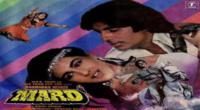
Navagraha Full HD Movie Download
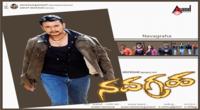
Chor Mandli Full HD Movie Download

Raja Babu Full HD Movie Download
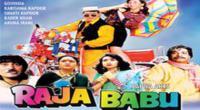
Break Ke Baad Full HD Movie Download
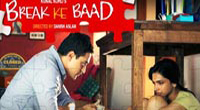
Janani Full HD Movie Download
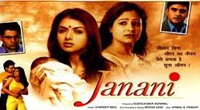
Rahul Full HD Movie Download

Hotel (1981) Full HD Movie Download
.jpg)
Maleyali Jotheyali Full HD Movie Download
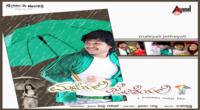
Bhayanak Bhutani Full HD Movie Download
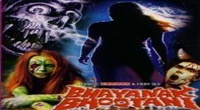
Aa Re Sathi Aaa Full HD Movie Download
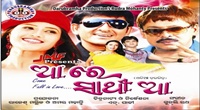
Raaga Deepam Full HD Movie Download
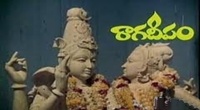
Harold and Kumar Escape from Guantanamo Bay Full HD Movie Download

Chottanikkara Amma Full HD Movie Download
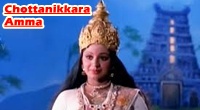
Manikya Chempazhukka Full HD Movie Download

Mrugaya Full HD Movie Download
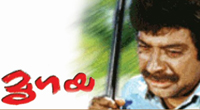
Edutha Sabatham Mudipen Full HD Movie Download
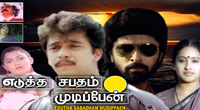
Jai Santoshi Mata Full HD Movie Download

Bangaru Chilaka Full HD Movie Download
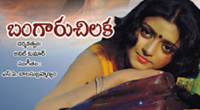
Vadhu Varulu Full HD Movie Download
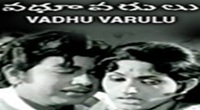
Download latest Movie from bollywood
- 1> baaghi 3
- 2> THE SKY IS PINK MOVIE FULL STORY AND REVIEW
- 3> Luka Chuppi
- 4> TO ALL THE BOYS I’VE LOVED BEFORE
- 5> Kabir Singh
- 6> Street Dancer 3D
- 7> Simmba
- 8> Gone Girl
- 9> The Girl Who Lived
- 10> Ludo
- 11> DILWALE DULHANIA LE JAYENGE
- 12> GUILTY
- 13> The Godfather
- 14> Adventures of Rusty
- 15> Sooryavanshi
- 16> Satyameva Jayate 2
- 17> Thappad
- 18> Bhool Bhulaiyaa 2
- 19> KGFChapter 2
- 20> Mardaani 2
- 21> Pinjar
- 22> Shivaji maharaj
- 23> Ek Villian 2
- 24> Hungama 2
- 25> Divergent
- 26> Mumbai Saga
- 27> The Internship
- 28> HIT (telugu)
- 29> Panga
- 30> The perfect date
- 31> 16 December
- 32> Gopala Gopala (Telugu)
- 33> Brahmastra
- 34> Gangubai Kathiawadi
- 35> Manmadhudu
- 36> Nenu local
- 37> Mahanati
- 38> Shatamanam bavathi
- 39> Lagaan
- 40> After
- 41> MOM
- 42> Shamshera
- 43> Raguvaran BTech
- 44> Khakee
- 45> The villain
- 46> OM
- 47> Mr. perfect
- 48> Bueatifull mind
- 49> Hichki
- 50> Gabbar Singh
- 51> Jogi
- 52> Before Sunrise
- 53> Before Sunset
- 54> Before Midnight
- 55> The Big Bull
- 56> Top Gun: Maverick
- 57> The Purge
- 58> The Sky is Pink
- 59> Laxmmi Bomb
- 60> Sadak 2
- 61> Sufna
- 62> Prithviraj
- 63> PK
- 64> Coolie No 1(2020)
- 65> Black Widow
- 66> Dear Zindagi
- 67> Dil Bechara
- 68> PHIR HERA PHERI
- 69> WAR
- 70> Dostana
- 71> RRR: Roudram Ranam Rudhiram
- 72> Maidan
- 73> Dabbang 3
- 74> Chhalaang
- 75> life as we know it
- 76> SherShaah
- 77> Sandeep Aur Pinky Faraar
- 78> Event Horizon
- 79> 83
- 80> Radhe: Your Most Wanted Bhai
- 81> Gunjan Saxena: The Kargil Girl
- 82> Mr India
- 83> Vivah
- 84> Anokha Bandhan
- 85> Ghost
- 86> Bhoot: Part One - The Haunted Ship
- 87> Haseen Dilruba
- 88> Laal Singh Chaddha
- 89> Qismat
- 90> Rajput
- 91> Drive
- 92> Dil Chahta Hai
- 93> Dil Ki Baazi
- 94> Dil Ka Rishta
- 95> Teesri Manzil
- 96> Dil
- 97> Love Aaj Kal
- 98> Khaali Peeli
- 99> Bunty Aur Babli 2
- 100> Atrangi Re
- 101> Gulabo Sitabo
- 102> Jodi
- 103> Suraj Pe Mangal Bhari
- 104> Deewana
- 105> Attack
- 106> Sardar Udham Singh
- 107> Toofan
- 108> THE LOVEBIRDS
- 109> Jersey
- 110> Ginny Weds Sunny
- 111> Thalaivi
- 112> Shiddat
- 113> Angels vs Zombies
- 114> Koi Mil Gya
- 115> Thank God
- 116> Bhuj: The Pride of India
- 117> Hum Aapke Hain Kaun
- 118> The Platform
- 119> Bird Box
- 120> Roohi Afzana
- 121> Torbaaz
- 122> Nikamma
- 123> World War Z
- 124> Extraction
- 125> Train to Busan
- 126> Life of Pi
- 127> SHAADI MEIN JROOR AANA
- 128> Himmat Aur Mehnat
- 129> To All The Boys: P.S. I Still Love You
- 130> Mimi
- 131> Good Newwz
- 132> Shubh Mangal Zyada Saavdhan
- 133> Raabta
- 134> Harry Potter and the Philosopher's Stone
- 135> Harry Potter and the Chamber of Secrets
- 136> Chhapaak
- 137> War of the Worlds
- 138> Harry Potter and the Prisoner of Azkaban
- 139> Harry Potter and the Goblet of Fire
- 140> MURDER MYSTERY
- 141> Shakuntala Devi
- 142> Bachchan Pandey
- 143> Jayeshbhai Jordar
- 144> Sheer Qorma
- 145> Saina
- 146> 'O' Pushpa I hate tears
- 147> Kedarnath
- 148> MS Dhoni The Untold Story
- 149> Chhichhore
- 150> Badhaai Ho
- 151> Unstoppable
- 152> Oz the Great And Powerful
- 153> The Girl on the Train
- 154> Haathi Mere Saathi 2020
- 155> The Conjuring: The Devil Made Me Do It
- 156> Gandhi Se Pehle Gandhi
- 157> The Song of Scorpions
- 158> Srimanthudu
- 159> Hello Guru Prema Kosame
- 160> Beauty and The Beast
- 161> Black Panther
- 162> Charlie and the Chocolate Factory
- 163> Bole Chudiyan
- 164> Fidaa
- 165> Duvvada Jagannadham
- 166> Bruce Lee: The Fighter
- 167> Hyper
- 168> Yaara
- 169> Red (2020)
- 170> Shivam
- 171> That Is Mahalakshmi
- 172> Nishabdham
- 173> Aashram 2020 web series
- 174> Laxmii
- 175> Mismatched
- 176> STUDENT OF THE YEAR 2
- 177> NAIL POLISH
- 178> Ramprasad Ki Tehrvi
- 179> KAAGAZ
- 180> 12 o Clock
- 181> The Power
- 182> bolo hau
- 183> Tribhanga
- 184> JAMUN
- 185> Madam Chief Minister
- 186> Maasaab
- 187> Aadhaar
- 188> Tanhaji
- 189> Bhaagi 3
- 190> Bhootnath
- 191> MALANG
- 192> Jai Mummy Di
- 193> Haathi Mere Saathi 2021
- 194> Shakeela
- 195> Unpaused
- 196> Annayya
- 197> Vamsoddharakudu
- 198> Mrugaraju
- 199> Narasimha Naidu
- 200> Sankranti
- 201> Manasu Maata Vinadhu
- 202> Anjaane
- 203> Apaharan
- 204> Bachke Rehna Re Baba
- 205> Bewafaa
- 206> Roohi
- 207> Radhe
- 208> Zindagi Khoobsoorat Hai
- 209> Yeh Mohabbat Hai
- 210> Yeh Kya Ho Raha Hai?
- 211> The Tomorrow War
- 212> DehradunDiary
- 213> Meri Shaadi Karaoo
- 214> Matruu Ki Bijlee Ka Mandola
- 215> No One Killed Jesica
- 216> Aag Ka Goola
- 217> Eight Million Dollars
- 218> Three Hundred
- 219> Cats and Dog
- 220> Decoy
- 221> Gold Rush
- 222> You Have Got Mail
- 223> Final Destination three
- 224> Tofan
- 225> Jungle
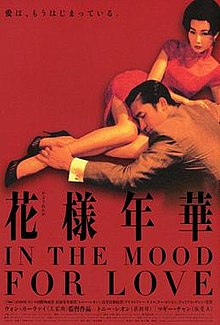 Story of movie In The Mood For Love :
Story of movie In The Mood For Love : 